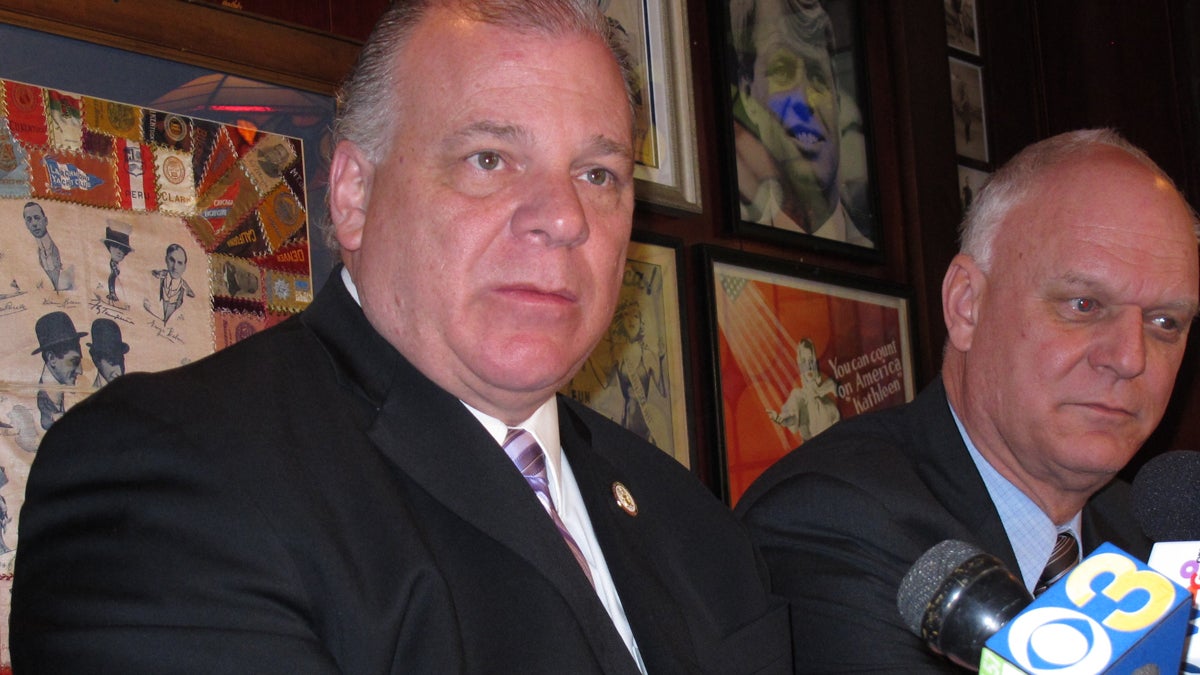Deal brings relief to people with disabilities who might have been relocated by NJ law

Senate President Stephen M. Sweeney says he feels the relocation issue personally because his daughter has a developmental disability. (AP, File.)
Until the past week, Carl Schulze had a growing sense of trepidation regarding his 35-year-old son Peter, who’s lived outside the state due to a seizure condition that left him with an intellectual disability.
State officials had told the Princeton resident and his family that Peter would be required to move back to the state because they had found a facility that could provide him the services that he requires – services that Carl Schulze said Peter’s current home at a facility in New Hampshire , had uniquely been able to deliver.
But those transfer plans are on hold as a result of an agreement between state senators and Gov. Chris Christie, which will stop the compelled transfer of residents with developmental disabilities if the residents or their guardians object to the transfer in writing.
And Schulze said he now feels something very different from the growing dread he’s felt during the process: “Great joy,” Schulze said of his reaction to the news.
Roughly 370 people with disabilities live outside New Jersey because either the state or their school districts, when they were younger, placed them in a facility in another state because no New Jersey providers could provide appropriate services.
Beginning under former Gov. Jon S. Corzine’s administration in 2009, state officials launched an effort – known as Return Home New Jersey – that aimed to bring all of those people back to the state.
The program accelerated under Christie. In some cases, this meant moving people who had lived in the same place for decades, and required their families to meet a series of potential New Jersey care providers, a process that parents described as torturous.
The agreement announced yesterday means that residents with disabilities will move back to New Jersey only if they or their guardians agree to it.
The issue has been the center of an extraordinary lobbying effort by families, which helped bring the state Senate within one vote of overriding Christie’s veto of earlier legislation that would have imposed a moratorium on the program.
Democratic senators considered holding a second override vote before opting to work with Republican senators and Christie on a compromise.
The draft version of the new bill allows for a few special exceptions to the prohibition on transfers even if they are opposed by people with disabilities or their guardians.
The state could proceed with transfers when an out-of-state facility is deemed to be unsafe by the U.S. Department of Justice, the Centers for Medicare and Medicaid Services, or a federally designated state protection and advocacy organization. In addition, the person with the disability must continue to remain in the same out-of-state location, unless it closes, to continue to be protected from unwanted transfers, and the person or their family must contribute to their care.
In a meeting last week with families and individuals affected by Return Home New Jersey, Christie “agreed with the need for sensible changes that ensure the safety and well-being of every New Jerseyan residing in an out-of-state placement,” Christie spokeswoman Nicole Sizemore said in a statement.
“It is encouraging to see those changes are reflected in the legislation being proposed by lawmakers today and we look forward to continuing our work together on behalf of these families,” Sizemore said.
Some residents were perilously close 0to forced transfers.
Carl Schulze said the state had informed him that it would stop funding Peter’s placement in New Hampshire on June 30. Peter has lived in a four-person group home operated by a married couple for 15 years, and lived at a similar facility in Pennsylvania for nine years before that.
“Now everything has been stopped in its tracks,” Schulze said of the proposed transfer.
Maureen Clark, whose adult daughter Maura has lived in Langhorne, PA, for 36 years, said she’s looking forward to the bill passing and becoming law.
“We’ve been so terrified and worried about Maura,” Clark said, adding that she’s grateful to the legislators for working on the issue. “We’re just very anxious to have it signed and have an end to this nightmare.”
Clark said many people contributed to the effort to stop the mandatory transfers, including families who lobbied legislators and state officials.
“We were writing like crazy and making phone calls,” she said.
WHYY is your source for fact-based, in-depth journalism and information. As a nonprofit organization, we rely on financial support from readers like you. Please give today.




